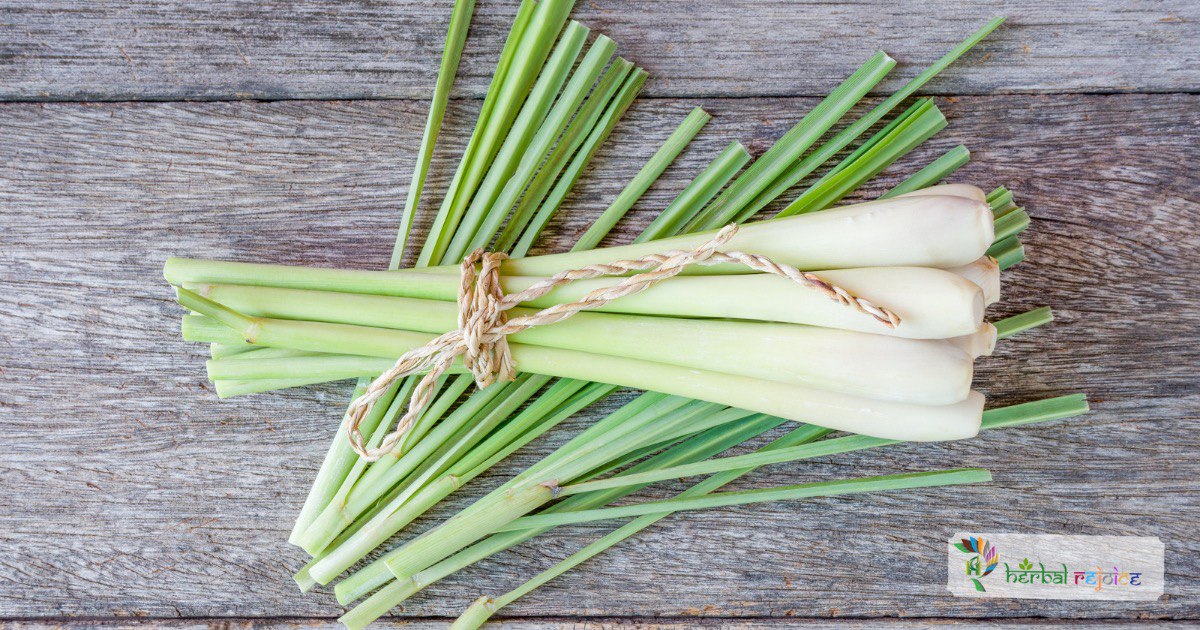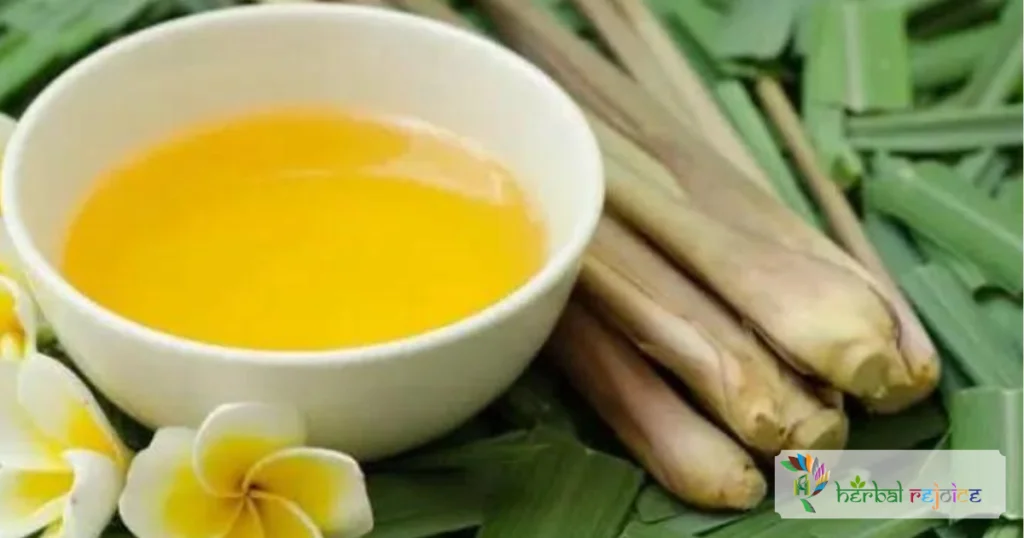Introduction:
Cymbopogon nardus (Linn.) Rendle, commonly known as Ceylon Citronella Grass, belongs to the Poaceae family. Traditional medicine employs these properties to support healthy digestion, alleviate gas and bloating, and provide relief from spasms.
Additionally, we will uncover the pest-repellent properties of its essential oil. By shedding light on its unique attributes, we aim to showcase the versatile contributions of Ceylon Citronella Grass to overall well-being.
Names and Habitat Of Citronella Grass
Cymbopogon nardus, also referred to as Andropogon nardus Linn., falls under the Poaceae family. This grass is predominantly found in South India, with limited cultivation in warmer regions of the country.
Traditional Uses and Benefits Of Citronella Grass
Cymbopogon nardus, as Ceylon Citronella Grass, has a rich history of traditional usage and offers various significant medicinal benefits.
1.Stomachic, carminative, and spasmolytic
The leaves of Cymbopogon nardus are recognized for their stomachic, carminative, and spasmolytic qualities. Traditional medicine employs these properties to support healthy digestion, alleviate gas and bloating, and provide relief from spasms.
2. Mild Astringent Qualities of the Leaves:
The leaves of Cymbopogon nardus also possess mild astringent properties. This makes them suitable for addressing minor issues related to the gastrointestinal tract, such as mild diarrhea.
Chemical Composition and Key Components:
Cymbopogon nardus contains various chemical components that contribute to its remarkable medicinal benefits and pest-repellent capabilities.
1. Essential Oil:
The essential oil derived from Cymbopogon nardus is particularly noteworthy. It contains numerous bioactive components that contribute to its therapeutic and pest-repellent properties.
2. Citronellal, Neral, and Citronellol:
The major constituents of the essential oil are citronellal (31.6%), neral (28.6%), and citronellol (10.6%). These components contribute to the oil’s stimulant, carminative, diaphoretic, and rubefacient qualities.
3. Elemicine, Geranyl Acetate, and Elemol:
The essential oil also contains elemicine (7.3%), geranyl acetate (4.6%), and elemol (3.7%). These compounds contribute to the oil’s antiseptic, antibacterial, and antifungal properties.
4. Limonene and Isopulegol:
Additional components found in the essential oil are limonene (3.2%) and isopulegol (2.7%). These compounds offer further therapeutic benefits, potentially supporting the oil’s medicinal uses.
Citronella Grass – Pest-Repellant

Potential Medicinal Benefits and Pest-Repellent Properties Of Citronella Grass
Cymbopogon nardus holds significant potential for both medicinal and pest-repellent applications.
1. Medicinal Benefits:
a. Gastrointestinal Disorders: Lemongrass and lemongrass oil, derived from Cymbopogon nardus, are widely used in combination with other herbs to address gastrointestinal discomforts such as indigestion, bloating, and mild diarrhea.
b. Muscle Pain and Neuralgia: The therapeutic properties of Cymbopogon nardus make it beneficial for relieving muscle pain and discomfort associated with neuralgia.
c. Nervous Disorders: Largely due to its calming and soothing qualities, Cymbopogon nardus is used in traditional medicine for various nervous disturbances, promoting relaxation and well-being.
d. Exhaustion: The essential oil of Cymbopogon nardus is utilized to combat exhaustion and fatigue, potentially revitalizing both the body and mind.
2. Pest-Repellent Properties:
Citronella oil derived from Cymbopogon nardus is renowned for its pest-repellent properties. It is commonly used as an effective natural insect repellent, keeping mosquitoes and other insects at bay.
Conclusion:
Cymbopogon nardus (Linn.) Rendle, known as Ceylon Citronella Grass, offers a wide range of therapeutic and pest-repellent benefits. With its stomachic and carminative properties, it supports healthy digestion and provides relief from gastrointestinal discomfort.
The essential oil derived from this grass showcases remarkable therapeutic potential, contributing to its use in addressing muscle pain, nervous disturbances, and exhaustion.
Additionally, the essential oil serves as an excellent natural insect repellent, protecting against pest-related inconveniences.
As with any natural remedy, it is important to exercise caution and seek professional guidance when incorporating Cymbopogon nardus into healthcare routines.
By embracing the unique properties of this grass, Ceylon Citronella Grass can offer natural solutions to various health concerns and enhance overall well-being.
Frequently Asked Questions (FAQs):
What is the scientific name for Ceylon Citronella Grass?
The scientific name for Ceylon Citronella Grass is Cymbopogon nardus (Linn.) Rendle.
What are the traditional uses of Cymbopogon nardus?
Cymbopogon nardus, or Ceylon Citronella Grass, has traditional uses for supporting healthy digestion, alleviating gas and bloating, providing relief from spasms, and addressing minor gastrointestinal issues like mild diarrhea.
What are the key components of Cymbopogon nardus?
The essential oil derived from Cymbopogon nardus contains citronellal, neral, citronellol, elemicine, geranyl acetate, elemol, limonene, and isopulegol, which contribute to its therapeutic properties.
How can Cymbopogon nardus be used for gastrointestinal disorders?
Cymbopogon nardus, specifically its essential oil, can be used in combination with other herbs to alleviate gastrointestinal discomforts such as indigestion, bloating, and mild diarrhea.
Does Cymbopogon nardus offer relief from muscle pain?
Yes, Cymbopogon nardus can be beneficial for relieving muscle pain and discomfort associated with neuralgia.
Can Cymbopogon nardus be used for nervous disorders?
Yes, Cymbopogon nardus is used in traditional medicine for various nervous disturbances due to its calming and soothing qualities, promoting relaxation and well-being.
Does Cymbopogon nardus help with exhaustion?
The essential oil derived from Cymbopogon nardus can help combat exhaustion and fatigue, potentially revitalizing the body and mind.
How does Cymbopogon nardus repel pests?
Citronella oil derived from Cymbopogon nardus is an effective natural insect repellent, particularly against mosquitoes and other insects.
Can Cymbopogon nardus be used as a substitute for conventional insect repellents?
While Cymbopogon nardus has pest-repellent properties, it is advisable to use it as a complementary approach and follow local health guidelines for effective pest control.
Is Cymbopogon nardus safe to use?
Cymbopogon nardus is generally considered safe for use but should be used with caution, especially for individuals with allergies or sensitivities.
Cymbopogon nardus be used topically?
Yes, the essential oil derived from Cymbopogon nardus can be used topically for medicinal or pest-repellent purposes. Dilute the oil before applying to the skin and perform a patch test to ensure no adverse reactions.
Can Cymbopogon nardus be consumed orally?
While Cymbopogon nardus is used in traditional medicine for digestive support, consuming the essential oil orally is not recommended without professional guidance.
Where can Cymbopogon nardus products be purchased?
Cymbopogon nardus products, including essential oil, can be found in herbal product stores, natural health stores, or reputable online sources.
Can Cymbopogon nardus be grown in home gardens?
Cymbopogon nardus can be grown in home gardens, particularly in warmer regions. Consult local gardening experts or nurseries for guidance on growing it in your area.
Can Cymbopogon nardus be used on pets?
The use of Cymbopogon nardus on pets should be done under professional guidance to ensure safe and appropriate use.
Is there scientific research supporting the benefits of Cymbopogon nardus?
Cymbopogon nardus has a history of traditional usage and may have scientific support for some of its therapeutic properties.
Can Cymbopogon nardus be used during pregnancy or breastfeeding?
It is advisable to consult with healthcare professionals before using Cymbopogon nardus during pregnancy or breastfeeding.
What precautions should be taken when using Cymbopogon nardus?
Dilute the essential oil properly before using topically, perform a patch test, avoid contact with eyes, and discontinue use if any adverse reactions occur. Seek professional guidance for proper usage.


